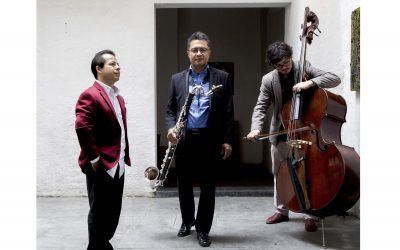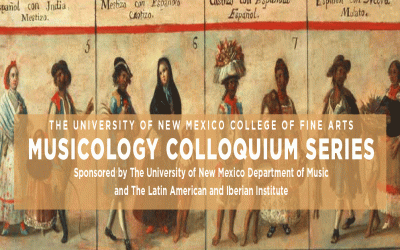Musicology Colloquium
Thursday March 12, 2020
2:00-3:30pm
CFA 2100
This talk explores the relationship between trauma and identity by examining Arab music performance on the U.S.–Mexico border. Drawing on the musicking of Syrian and Mexican migrant communities, I interrogate theories of cultural and psychological trauma and borderland epistemologies to explore how border tensions influence the often-fraught views of identity.
Dr. Andrea Shaheen Espinosa is Associate Professor of Ethnomusicology and Oboe at the University of Texas, El Paso, and currently serves as the Musicology Area Coordinator for the Department of Music. She is the founder and director of the UTEP’s internationally recognized Middle Eastern music ensemble, Layali Al-Sham. She is a Fulbright Fellow, a FLAS recipient, and a Medici Scholar, and is currently serving as the UTEP College of Liberal Arts Dean’s Faculty Fellow. Her research focuses on music, migration, and trauma, and her recent publications include articles in The Double Reed, Cahiers d’ethnomusicologie, and Yearbook for Traditional Music.
An Americanish Songbook: Linda Ronstadt’s “other” Country
This talk will consider performances and recordings by singer Linda Ronstadt to propose what I refer to as her Americanish musical songbook. The suffix “ish” here intends to accentuate the “somewhat” or “to some extent” of “American” that Ronstadt—Tucson born and raised—lived and sonically imagined through her extraordinary musical career.
Music from the Americas presents The Low Frequency Trio
Formed by Antonio Rosales (bass clarinet), Juan José García (doublebass), and José Luis Hurtado (piano), LOW FREQUENCY TRIO is one of the few ensembles in the world that plays music that was exclusively composed for them.
Music, Power, and Signification: A Phenomenological Reading of Race in New Spain
In New Spain, an institutional structure of merit and promotion hinged on the idea of reason as an intrinsically European attribute. This attribute differentiated ‘Europeans’ from people of mixed race claiming European status based on their skin complexion.



